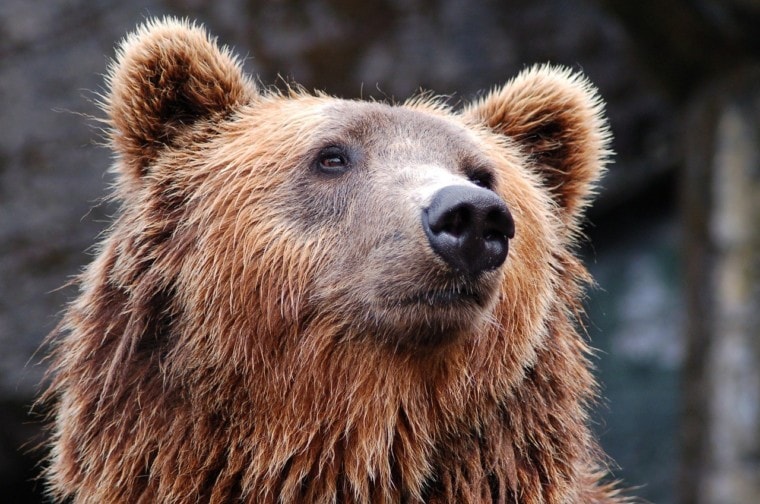
Humans are typically afraid of bears and for good reason. They are big, loud, powerful, and downright intimidating. Figurately, our fear of bears is not typically warranted because bears pose little threat to us overall. Black bears, which are the most common bears humans tend to come across, are responsible for an average of one human death each year in the United States. Being around bears in the wild is less risky than driving in a vehicle.
The truth is that a bear would rather run away from a human than engage with them. So, if they try to avoid humans, do they do the same with cats? The short answer is yes, bears will almost always ignore or distance themselves from a cat that they might come across. But there is more to the story, so continue reading to find out!
Why Don’t Bears Usually Attack and Eat Cats?
There are multiple reasons that bears are not big threats to cats. First and foremost, cats do not usually reside in areas where bears are found unless they live near the woods or on a rural farm. Secondly, large wild cats have been known to attack bears and win, so bears may be naturally inclined to avoid felines, no matter their size. Cats are typically too fast for bears to catch up with, so they probably could not attack a cat even if they come across one. Chances are that they would run away from a cat that tried to approach them.

Why Would a Bear Attack a Cat?
The biggest reason that a bear might feel the need to attack a cat is if the cat does something that is perceived as threatening, like getting between a mother and her cubs. Trying to take control over a source of food could be another reason for a bear to attack any living creature, even a cat. The threat of danger or control over food would have to seem imminent to get a reaction out of a bear. However, the chance of your cat doing anything to enrage a bear is slim.
Would a Bear Eat a Cat That They Attack?
Bears are omnivores but they eat little meat. Most of their protein comes in the form of fish and small land mammals, like rabbits. So, they may or may not eat a cat that they attack. To them, it would simply be a source of food if they are hungry. If they have recently eaten, they may leave the cat and move on. It all depends on the specific circumstances.
What You Can Do to Enhance Your Cat’s Safety
If you are worried about your cat coming across a bear that could harm them while spending time outside, there are a few things that you can do to help protect them. Start by attaching a large bell on your cat’s collar so they will make constant noise whenever they are moving around outside. This will help ensure that a bear does not get caught off guard and react more intensely than is necessary if your cat goes near them. The noise should also help keep bears from getting too close to your cat.
If bears are commonly seen around your property, it is a good idea to keep an eye on your cat whenever they spend time outdoors. If they tend to wander off on their own, consider using a leash to ensure that you can keep tabs on them. Keep bear spray on hand just in case you come across a bear during your outings, as it will help protect you both and provide you with extra peace of mind.
Summary
Fortunately, we do not have to worry about bears attacking and eating our cats. The chance is extremely low, even when living in “bear country.” However, it is always good to know about the risks of bear attacks on cats and how to minimize those risks. Do you live near bears, or have you ever encountered one close up? If so, we would love for you to tell us about your experiences by leaving a comment.
Related Reads:
- Do Bears Attack and Eat Rabbits?
- 14 Bear Attack Statistics & Facts to Know: How Many Attacks Happen Every Year?
- 12 Canada Bear Attack Statistics & Facts to Know: How Many Attacks Happen Every Year?
Featured Image Credit: Pexels from Pixabay





